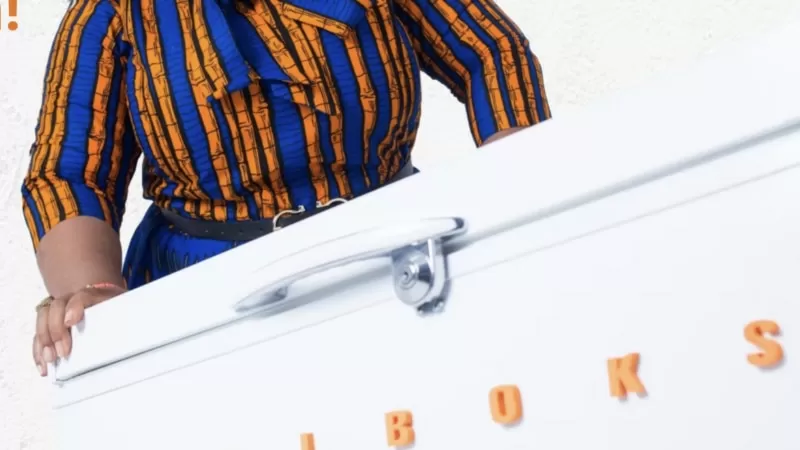NAIROBI, KENYA – For years, Caroline Mukundi, a milk and egg vendor, struggled with the challenge of keeping her fresh food stock from going bad at the Nairobi market. Without access to refrigeration, she would often have to throw away her unsold goods, resulting in a significant loss of income. But now, thanks to a local innovation, Mukundi’s situation has turned around and she is able to keep her food fresh and sell it for longer.
Mukundi’s saving grace came in the form of a solar-powered refrigerator. These refrigerators, called Koolboks, are manufactured in Kenya and come equipped with ice compartments that can keep food chilled even without a source of electricity. This innovation has not only helped vendors like Mukundi, but it has also had a positive impact on the environment.
Natalie Casey, the chief business officer at Koolboks startup company, explains that customers can purchase these refrigerators on a customized payment model. “They can range from 1,500 to 3,000 US dollars, which includes not only the appliance but also the solar panels and battery storage to enable continuous cooling,” she says. “To make it more accessible, we allow customers to pay a down payment of 20 to 35% of the total cost, and the remaining amount can be paid in installments over a period of 24 months.”
Since its inception, Koolboks has sold around 7,000 solar-powered refrigerators. This has been a game-changer for small businesses and vendors, who previously could not afford the high cost of conventional refrigerators. According to Dorothy Otieno, program manager at the Center for Environmental Justice and Development, conventional refrigerators for businesses can cost anywhere from 11,000 to 100,000 Kenyan shillings or more. This has made it difficult for small businesses to invest in refrigeration and has resulted in a high level of food waste.
“We are looking at how businesses can be supported to access the Koolboks refrigerators, especially for communities that are not able to afford them,” says Otieno. This is a crucial step in reducing food waste and its impact on the environment.
The Koolboks refrigerator was recently showcased at the Africa Tech Summit in Nairobi, along with dozens of other innovations. Andrew Fassnidge, the conference’s founder, believes that such creations are essential in solving local problems on the continent. “What’s interesting with Koolboks refrigeration is that, if we look at the COVID vaccine, one of the biggest issues was refrigeration, and it’s still an issue in most markets,” he explains. Koolboks has also developed a refrigerator specifically for vaccines, which can have a significant impact on vaccine storage and distribution in remote areas.
Aside from its impact on businesses and healthcare, the Koolboks refrigerator also has a positive effect on climate change. A 2024 survey by the U.N. Environmental Program revealed that Kenya has a high level of food waste, with an annual waste of 40 to 100 kilograms per person. This waste not only affects the economy but also contributes to climate change. High levels of organic waste worsen the effects of climate change, making it crucial to find ways to prevent food waste.
In conclusion, the Koolboks solar-powered refrigerator is a game-changer for small businesses and vendors like Caroline Mukundi. It not only helps them preserve their fresh food stock but also has a positive impact on the environment. With the support of organizations and conferences like the Africa Tech Summit, local innovations like the Koolboks refrigerator can continue to thrive and make a difference in solving local problems.


